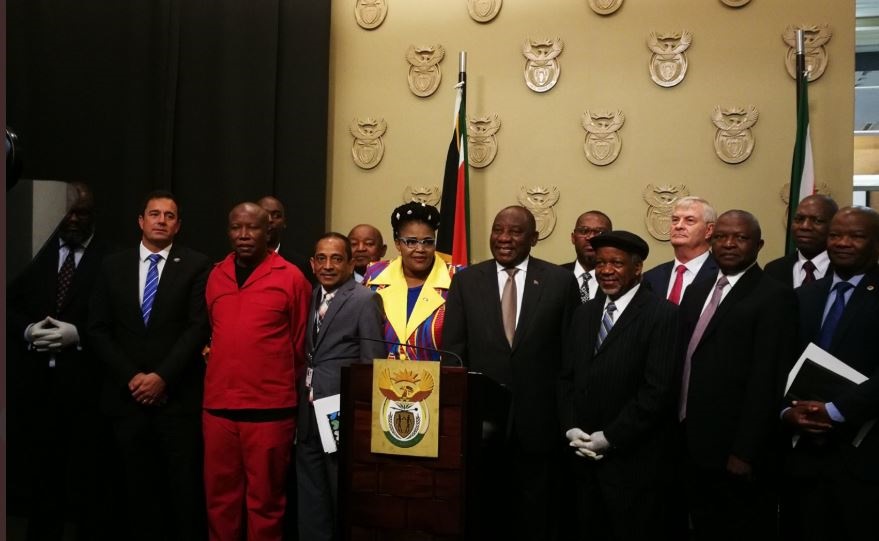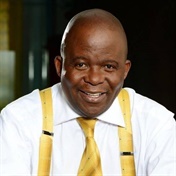
The coronavirus isn’t going away anytime soon, and the way our leaders handle it and the way the nation responds, will be revelatory for generations to come, writes Rich Mkhondo.
Never in my lifetime has the world ever seemed such a frightening place.
In the midst of the coronavirus (Covid-19) pandemic, I have been pondering about how political and business leaders must and should behave in the face of unexpected, extreme, destabilising times like we see now.
Can or will the Covid-19 crises make and break the reputation of some business and political leaders across the world?
Yes, it certainly can.
The truth is, as fears about the novel coronavirus continue to spread around the world, economic markets continue to struggle as investors fear uncertainty, mixed messages coming from our political, business and even religious leaders, will and can never be helpful.
In times of crisis, like we see now, people turn to political, business and or religious leaders for cues on how to respond. It is at times like these when we turn to them for wisdom, reassurance and decisive action.
This world crisis demands leadership not waffle, posturing and dithering.
In times like these, we need no mouths utter foolish nothings let alone spineless invertebrates.
We need leaders who say what they mean, and mean what they say.
Any mixed messages only hinders a proper response because it creates confusion about what exactly is happening and what can be expected.
Lest we forget that the term "crisis" is used loosely to describe a wide array of immediate and longer-term serious threats to systems (the environment and the economy), structures (such as floods or fire threats to properties), to people (pandemics) and even to democracy. Different types of crises present different kinds of challenges for leaders.
Some crises simmer, while others are sudden and unexpected.
Most crises are not a single isolated event; rather, they are complex, dynamic phenomena that unfold in sometimes-unpredictable ways just like COVID-19.
No leader, Boris Johnson (United Kingdom), Donald Trump (United States), Cyril Ramaphosa, Angela Merkel (Germany), Jacinda Ardern (New Zealand), Richard Branson (Virgin Group), Adrian Gore (Discovery) or Sihle Zikalala (KwaZulu-Natal) can fake his or her way out of this.
They can never say this is fake news. They can never blame the media.
There's no script to flip when citizens are vulnerable to potential community spread of the virus and if they are concerned about the lack of a clear plan or strategy from leaders and their management teams.
Robust and transparent plan or strategy
Our leaders cannot change the narrative about the economy when people see a crashing stock market day after day or when people mourn or grieve and burials happen every day.
Day to day social media messages or incoherent press conferences won't fix this crisis. Only clear leadership and transparent messages will.
In times of crisis, only a robust and transparent plan or strategy and clear messages informs the country and communities of what the government and business leaders are doing to meet the growing spread of the crisis.
The plan and clear messaging also informs the public of collaborations that are ongoing and how our country and provinces are partnering with health agencies to make sure each state has the necessary support and resources to protect people, specifically the most vulnerable among us.
Credibility
In order to sell messages, a leader must possess the crucial quality of credibility.
Credibility is simply another way of saying that a person knows what they're doing and acts consistently and in a sincere fashion.
Indeed, leadership and crises are an intertwined phenomena. We expect our leaders to do their utmost to anticipate and to protect us against any threats, to mitigate their impacts and, in the aftermath of severe disruptions, to take actions to restore society to a condition of normalcy.
Rules of leadership during crises
So how should political and business leaders behave or communicate in the face of unexpected, extreme, destabilising times like these?
There are two parts to leadership during a crisis: the reaction to events and the political and or business management of the impact emanating from how a crisis is handled.
A leader is a bridge between framing the issues involved and promoting public understanding.
He or she must walk a tightrope: provide the assurance that events are not spiralling out of control, yet not minimise the seriousness of the situation.
Smart leaders know when to intervene and when to stand back from the action during the course of a crisis. The leaders should signal to the public when the threat has subsided or has been eliminated.
The character and competence of a leader is often tested in a crisis. A leader who offers credible assurances and oversees the successful resolution of a crisis gains in stature.
Leadership style, especially how much a leader insists on control, affects how much leadership and messaging becomes a shared activity involving experts inside and outside of government.
Good leaders understand that, while their teams may instinctively seek to batten down the hatches, their role is to ensure that the nation is as prepared as possible, has an agreed response plan in place, and - crucially - a plan for recovery to allow the nation to cope.
In this world of instant news consumption, the reality is that people can be watching a crisis unfold before it is even on the leaders’ radar.
People in the suburbs, township and squatter camps may even be the ones to tell about the crisis. As a result, expectations could be extremely high as to how a leader responds to, and communicates throughout, a crisis.
And in most cases, that means they need a leader who can communicate quickly, clearly, and with empathy.
Of course, managing public understanding and expectations is exceedingly tricky, especially in the age of social media when misinformation, rumours and fears spread rapidly. That is why during a crisis, the messaging must be clear, honest and credible.
Arming spokespeople
During a crisis, the messaging must be clear, honest and credible.
The best weapon in fighting potential reputational damage is arming your spokespeople, then your audiences, with the facts.
The first task is to figure out what those are - if you can't get the answers quick enough, identify a process for getting them.
Then, decide how much of this information you can communicate publicly. More is usually better.
Mistakes
What are the most common leadership mistakes during a crisis?
Failing to have a strategy, plan and messages in place is frighteningly common.
Many leaders, whether political or businesses, don't think about what could go wrong.
Many leaders are guilty of sticking their heads in the sand instead of formulating a clear plan. This is unwise when you consider the sobering fact that Covid-19 has taken many lives.
Failure to identify and train spokespeople before a crisis hits is another common oversight.
A wise leader should select the calmest heads and most credible spokespeople for when the crisis chips are down.
So how has President Ramaphosa performed during this Covid-19 crisis, one of his greatest tests since taking office?
So far, he has proven himself to be fully prepared and capable of rising to the occasion.
A leader should not only ask people to trust him but instead present a credible story about exactly what happened and what the way forward is. It is abundantly clear what will happen during the next 21 days.
President Ramaphosa has passed crises preparedness and communications with flying colours.
Through effective communication, he has shaped perceptions that will guide the behaviour of institutions and the nation during the next 21 days.
Health Minister Dr Zweli Mkhize, Minister in the Presidency, Jackson Mthembu and Presidential spokesperson, Khuselo Diko and cabinet cluster ministers have served the nation well and should be applauded.
The coronavirus isn’t going away anytime soon, and the way our leaders handle it and the way the nation responds, will be revelatory for generations to come.
- Rich Mkhondo runs The Media and Writers Firm, a content development and reputation management hub.




 Publications
Publications
 Partners
Partners























